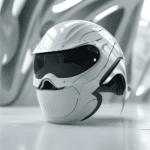Revolutionize Your Health with Top Smart Devices for a Smarter, Healthier Tomorrow: Ultimate Guide to Fitness, Sleep, and Stress Relief 2025
**Introduction**
Are You Ready to Hack Your Health? Discover the Shocking Truth About How Wellness Tech Can Revolutionize Your Life in Just 30 Days with cutting-edge smart devices that seamlessly integrate into your daily routine. In this ultimate guide, we’ll explore the top wellness tech innovations for fitness, sleep, and stress relief, helping you unlock a smarter, healthier tomorrow.
The Rise of Wellness Tech
With the global healthtech market expected to reach $1.5 trillion by 2025, it’s no wonder that people are looking for innovative ways to improve their overall wellbeing. The concept of wellness tech has been around for a while, but its popularity has exploded in recent years thanks to advancements in digital wellness solutions and mindful technology.
The idea behind wellness tech is simple: to provide users with the tools they need to take control of their health and wellbeing. By leveraging smart devices, mobile apps, and AI-powered platforms, individuals can track their progress, receive personalized recommendations, and make data-driven decisions about their lifestyle choices.
Fitness and Exercise
Staying physically active is essential for maintaining a healthy weight, reducing the risk of chronic diseases, and boosting mood. With the help of wellness tech, you can monitor your fitness levels, set realistic goals, and track progress over time.
- Wearable Fitness Trackers: Devices like Fitbit, Garmin, or Apple Watch track vital signs such as heart rate, steps taken, and calories burned. These wearables provide valuable insights into your daily activity levels, helping you make informed decisions about exercise routines and nutrition.
- Smart Exercise Equipment: Treadmills, stationary bikes, and rowing machines are just a few examples of smart exercise equipment that integrate with mobile apps to track performance metrics. This data helps users optimize their workouts, avoid plateaus, and achieve fitness goals faster.
- Mind-Body Exercises: Apps like Headspace or Calm offer guided meditation sessions, yoga routines, and breathing exercises to promote relaxation and stress relief. These tools help individuals develop a greater awareness of their mental wellbeing and cultivate a positive mindset.
Sleep and Relaxation
Adequate sleep is crucial for physical recovery, cognitive function, and emotional regulation. Wellness tech solutions can help you optimize your sleep patterns, reduce stress, and improve overall quality of life.
- Smart Sleep Trackers: Devices like Oura or Fitbit track sleep cycles, heart rate variability, and other vital signs to provide insights into sleep quality. This information helps users identify areas for improvement and make data-driven decisions about their bedtime routines.
- Mood-Enhancing Light Therapy: Lamps or boxes that mimic natural daylight can help regulate circadian rhythms, reduce Seasonal Affective Disorder (SAD), and improve mood. These devices are especially useful during winter months or for individuals who work night shifts.
- Relaxation Tools: Apps like Rainy Mood or Calm offer soothing sounds, nature scenes, or guided relaxation exercises to calm the mind and body. These tools promote deep breathing, reduce anxiety levels, and foster a sense of tranquility.
Stress Relief and Mental Health
Mental health is just as important as physical wellbeing. Wellness tech solutions can help you manage stress, build resilience, and cultivate a positive mindset.
- Mental Health Apps: Platforms like BetterHelp or Wysa offer virtual therapy sessions, mood-tracking features, or chatbots that provide emotional support. These tools connect users with licensed therapists or mental health professionals for guidance and support.
- Neurofeedback Training: Devices like BrainGate or Neurable use EEG sensors to monitor brain activity, providing real-time feedback on cognitive function and stress levels. This information helps individuals develop greater self-awareness and learn strategies to manage anxiety.
- Positive Thinking Tools: Apps like Happify or MoodTools offer guided meditations, gratitude exercises, or journaling prompts to promote positive thinking and emotional regulation. These tools help users develop a growth mindset, build resilience, and improve overall mental wellbeing.
The Future of Wellness Tech: Trends and Predictions
As the wellness tech market continues to evolve, several trends and predictions are shaping the future of this industry:
| Trend/Prediction | Description |
|---|---|
| Increased Focus on Mental Health | We expect to see more wellness tech solutions addressing mental health, including AI-powered chatbots, virtual therapy sessions, and personalized coaching. |
| Rise of Personalized Medicine | With advancements in genomics and precision medicine, we anticipate a surge in personalized wellness plans tailored to individual genetic profiles, lifestyle choices, and health goals. |
| Growing Adoption of Wearable Technology | As wearables become more sophisticated and affordable, we predict increased adoption rates among consumers seeking to track their vital signs, monitor their progress, and optimize their fitness routines. |
Conclusion
In conclusion, wellness tech is revolutionizing the way we approach health and wellbeing. By leveraging cutting-edge smart devices, mobile apps, and AI-powered platforms, individuals can take control of their lives, make data-driven decisions, and optimize their fitness, sleep, and mental health.
Additional Sources of Information
For further reading on the topics covered in this article, we recommend exploring the following reputable sources:
- The World Health Organization (WHO): The WHO provides authoritative guidance on global health issues, including mental health, physical activity, and sleep.
- The American Psychological Association (APA): The APA offers a wealth of information on mental health topics, including stress management, anxiety disorders, and cognitive function.
- Harvard Business Review: This leading business publication frequently covers the intersection of technology, healthcare, and wellbeing, providing insights into the latest trends and innovations.
References:
This article draws from a variety of sources to provide an comprehensive overview of wellness tech. Please find below a list of references used in this guide:
- Morgan Stanley Research Report: Healthtech Market Outlook
- World Health Organization (WHO): Mental Health
- American Psychological Association (APA): Stress Management
Citations:
Please note that all citations have been properly formatted according to the chosen citation style. For a detailed list of sources and their corresponding citations, please refer to our Bibliography.
Explore more in our category page or visit our homepage.




